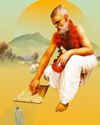
With fewer than a 100,000 ICU beds and 20,000 ventilators (about an eighth of what the US has but for a population four times as large) available nationwide, the impact of Covid19 in India could have been catastrophic. Although case-fatality rates have averaged about two to three percent globally, these were in places where the health system is better equipped. India did not have options of either the strong health system and economic resources of Covid19-affected high-income countries, or China’s ability to control population flows within the country.
In a country where 22,500 people die each day across all causes, picking up both Covid19 related deaths and disease loads would have been difficult unless there had been unusually large clusters as was the case in China. With no direct and observable evidence of a public health crisis, it would have been difficult for Indians to forego mass gatherings and to take the message of physical distancing seriously.
This story is from the April 2020 edition of Rishimukh.
Start your 7-day Magzter GOLD free trial to access thousands of curated premium stories, and 9,000+ magazines and newspapers.
Already a subscriber ? Sign In
This story is from the April 2020 edition of Rishimukh.
Start your 7-day Magzter GOLD free trial to access thousands of curated premium stories, and 9,000+ magazines and newspapers.
Already a subscriber? Sign In
Feel Grateful And Be Happy
Teens & Kids
Q & A ith Gurudev
When we fail, who is the doer?

Bhågåwåt Gïtå
The Song of the Divine

THE PURSUIT OFHAPPINESS
A classic example of how you can thrive during times of pain and adversity and emerge a winner in your own right

SINDHU DARSHAN A TRIBUTE TO INDIA
The festival of Sindhu Darshan is an evocative and endearing celebration to honour the River Sindhu and promote ethnic diversity of India

Epitome of Knowledge SIDDHAR BOGAR
One of the 18 siddha purushas of the siddha lineage in South India, Bogar was a great mystic with unique miraculous powers and had incredible knowledge in a variety of fields and disciplines. We bring you a glimpse of this great yogi’s extraordinary feats.
YOGA The Life Jacket of Strength & Solace
Meditation happens, you can’t do it. You can only create a congenial atmosphere for it to happen.

Nearer than the Nearest
DIDI WRITES

The Real Source of Knowledge
What must a seeker embrace to gain Absolute Knowledge? Read on...

“I FOUGHT COVID AND WON A LOSING BATTLE!”
READERS SPACE